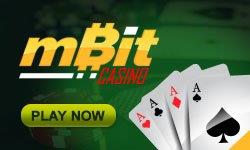Bitcoin mining
If Bitcoin is not printed just like the typical currency like dollars, how does it being generated? Basically, there are three ways to get bitcoins: buy on an exchange, accept bitcoins for goods and services, and mining new ones.
Mining refers to the discovery of new bitcoins, just like discovering gold, hence the name. Mining happens through verification of transactions, which are all contained in this ledger called “block chains”.
The block chains are the virtual padlock that holds all the transactions together and the miners are the ones who unlock it, which verify transactions. For being able to unlock this and successfully verify transactions, a miner gets a reward of newly produced 25 bitcoins.
How to mine?
Bitcoin mining can be done even by a beginner as long as basic software and specialized hard skills are present. The software that is needed to mine is open to all and is free for download.
What does a miner need?
A miner first needs a Bitcoin wallet with an encrypted online bank account to contain what’s earned. Then there’s the mining software itself, the most popular being GUIMiner. This program starts to mine on its own after being launched, looking for the mystery combinations to unlock block chain’s virtual padlock.
The faster and more powerful a miner’s computer is, the faster the miner will produce bitcoins. Mining in the present is not as fast as before. It’s because it’s the way the system was built, easier to mine in the beginning, but harder as more bitcoins are made.
Faster hardware is being developed by several mining start-ups over the last few years to speed up the mining process and the cost of a full mining rig that can discover bitcoins on its own is around $12,000.
Mining pools
There’s another way to mine without spending this much and that is to join mining pools. Pools are groups of miners from all around the world who pool their computers together to mine. Small-time miners can receive a portion of bitcoins when they add their computers into the collective pool.
The catch is, since pool sites are also not regulated just like Bitcoin wallets, the operator of the pool is not legally obliged to give everyone their cut.



